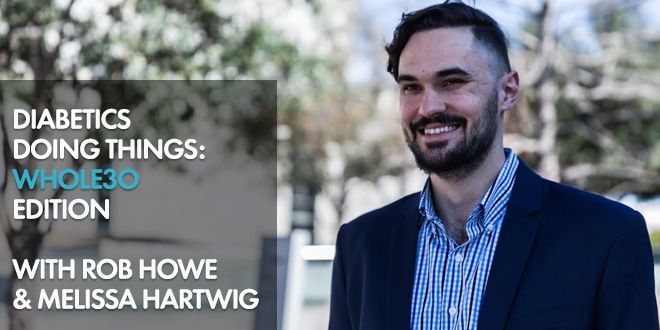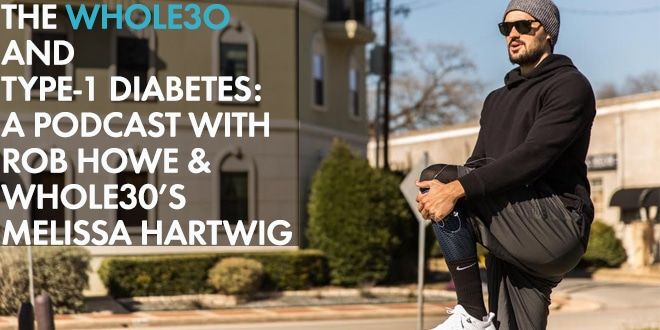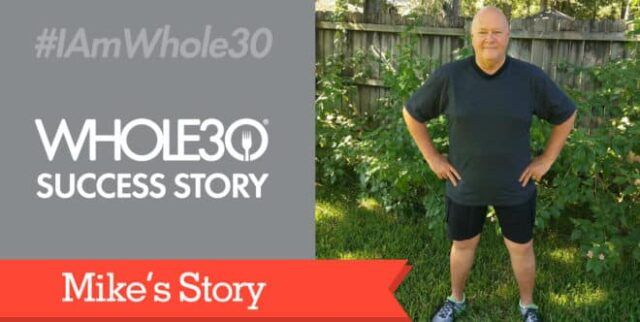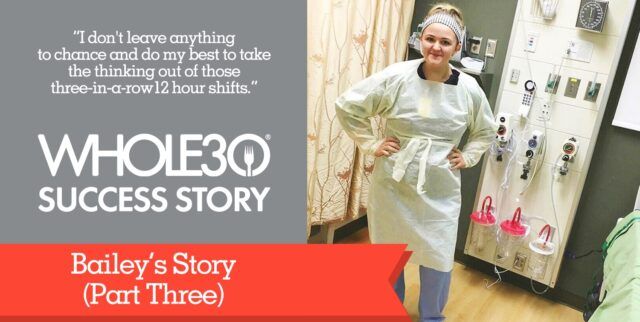From Melissa Urban, Whole30 headmistress I first read about Rob Howe’s Whole30 results on Instagram (@robhowe21). Rob, a type-1 diabetic, posted a photo of his fasting blood sugar (a little high on Day 1 of his third Whole30), but shared the results from his first two programs; he reduced his basal insulin by 60%, reduced his bolus insulin to near zero, and lowered his Hg a1C by .5. I outreached to him right then and there, and invited him to share his story on our blog. He responded with the following background information:
In Rob’s Words
I’ve been a Type-1 Diabetic since I was 16. I was a college and a pro basketball player, so when I was younger, my diet didn’t matter as much because I was working out all the time. When I was done (playing), I started working at a desk and living a more sedentary lifestyle like most people. In the summer of 2014, two of my friends started doing the Whole30 and had great results. I had lunch with my parents and mentioned it, and they immediately started doing it too! (They’ve been living about 90% Whole30-compatible ever since; they’re currently in the middle of their fifth full Whole30.) I saw what amazing results they had, so I had to try it for myself. I couldn’t have been happier with the results. I felt better, had great energy, slept better, and lost the extra weight I had picked up. But the biggest difference was in my diabetes. I lowered my hemoglobin a1c from 7 to 6.5 (which is awesome), and I did it while reducing my basal insulin consumption about 50% and completely eliminating bolus insulin! I was literally consuming about 200% less insulin and getting better numbers.] Fast-forward to today, in the middle of my third Whole30, and I’m seeing better results than ever. I’ve also recently started a podcast/blog for people with Diabetes called Diabetics Doing Things. The mission is to spread the belief that diabetics are cool and do amazing things. I would love to have you on the podcast and have a fun conversation with us about the results I’ve had on the Whole30 and address concerns that other Diabetics may have about starting it. 
Diabetics Doing Whole30
I loved Rob’s suggestion, and a week later, we recorded a podcast where we talk about how the Whole30 works to help type-1 diabetics manage blood sugar and reduce the inflammatory consequences of the condition, and how he’s managed the program around exercise, episodes of low blood sugar, and social situations. What came out of our conversation was Rob’s personal roadmap for doing the Whole30 (and living “life after”) as a type-1 diabetic. If you’re a type-1 and wondering if or how the Whole30 is for you, you won’t want to miss this conversation.* Check out Melissa and Rob’s podcast on the Whole30 and type-1 diabetes.
*NOTE: Neither this website nor Diabetics Doing Things provide medical advice, diagnosis, or treatment. The information presented is general information for educational purposes only, and is not a substitute for medical care. You should not use the information in place of a visit, consultation, or the advice of your physician or healthcare provider. If you believe you have a health problem or if you have any questions regarding your health or a medical condition, you should promptly consult your physician or healthcare provider. Never disregard medical or professional advice, or delay seeking it, because of something you read on this (or any) website. Please seek the advice of a qualified medical practitioner before making any dietary or lifestyle change as a type-1 diabetic. We have a great series called “Talk to Your Doc,” written by Luc Readinger M.D., which contains useful information to consider when talking with your physician: Part 1: Talk to Your Doc: Whole30 and Prescription Medications Part 2: Talk to Your Doc: What to Do if Your Doctor Says No
















